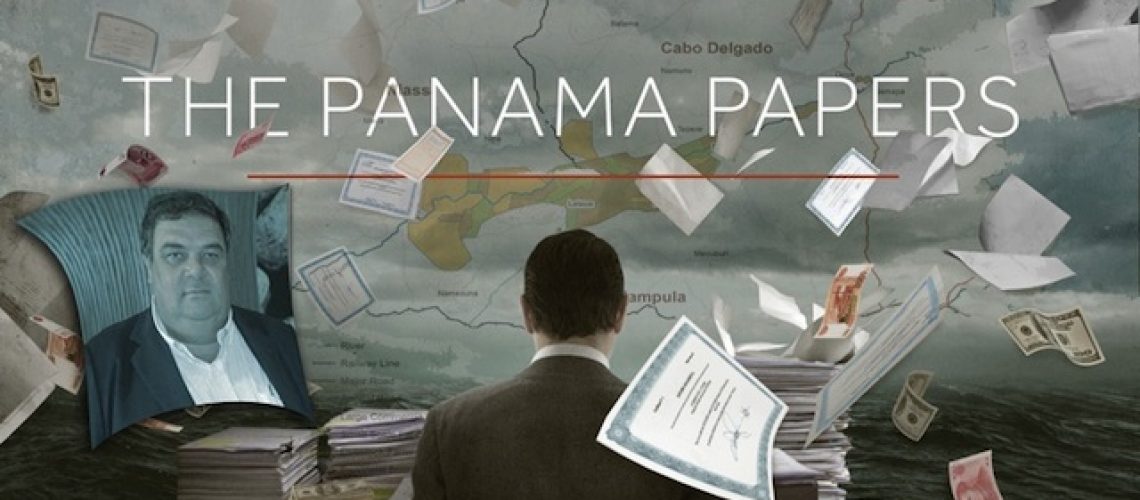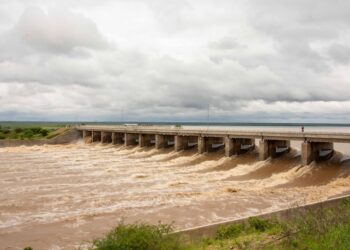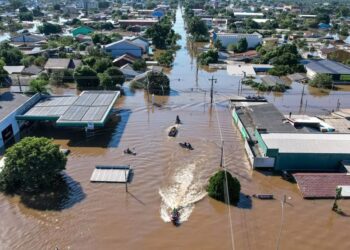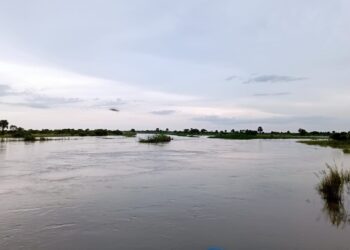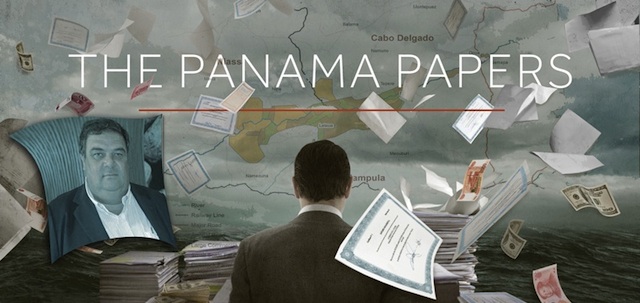 When Mozambique’s civil war ended in1992, outside money began to trickle in. Foreign investors eyed mines, game reserves, islands and oil and gas deposits. Now, international financiers have turned to a new opportunity: farmland, especially in northern Mozambique’s Nacala Corridor. More than 95 percent of Mozambique’s cultivated land is worked by millions of families that farm for food and income. But that land may be at stake if one of the largest agricultural development deals in Africa valued at $4.2 billion, the Lurio River Valley Development project – is realised with up to 100 000 people displaced. Details leaked from the Panama Papers database show the project in Mozambique being orchestrated behind a web of opaque offshore companies with little in the way of credible track records, financing information or even brick-and-mortar offices.
When Mozambique’s civil war ended in1992, outside money began to trickle in. Foreign investors eyed mines, game reserves, islands and oil and gas deposits. Now, international financiers have turned to a new opportunity: farmland, especially in northern Mozambique’s Nacala Corridor. More than 95 percent of Mozambique’s cultivated land is worked by millions of families that farm for food and income. But that land may be at stake if one of the largest agricultural development deals in Africa valued at $4.2 billion, the Lurio River Valley Development project – is realised with up to 100 000 people displaced. Details leaked from the Panama Papers database show the project in Mozambique being orchestrated behind a web of opaque offshore companies with little in the way of credible track records, financing information or even brick-and-mortar offices.
A leaked copy of a corporate presentation, titled ‘project summary’ dated 20141 identifies 240 000 ha of land along the banks of the fertile Lurio River criss-crossing three provinces for development – Cabo Delgado (18%), Niassa (25%) and Nampula (57%). An estimated 500 000 people inhabit these prime lands and a potential 100 000 may be displaced if the project – designed to construct large private industrial farms, dams and other infrastructure like canals, goes ahead without adequate consultation. Critics that we spoke with argued that it is infrastructure a country like Mozambique desperately needs. But who is served by the design of infrastructure? Who is behind the project? And if hundreds of thousands of people are to be seriously impacted by development and up to 100 000 displaced, should the corporate structure showing the true beneficiaries of this lucrative project not be transparent?
Who Owns Whom?
According to the leaked document, a company called Companhia de Desenvolvimento do Vale do Rio Lúrio (DVRL) leads the project, and despite the size of the deal, little can be confirmed about the company. We know DVRL is managed by two financial entities: Turconsult and Agricane. The latter says it provides consulting services to large-scale farmers and has offices in South Africa and Malta, a European tax haven. No telephone numbers are listed for Agricane and only one general email address is provided.
Turconsult is headed by Rui Monteiro, an influential Mozambican businessman with alleged high level connections to Mozambique’s ruling Frelimo Party. Monteiro’s Linkedin profile shows him to be the Mozambican representative of Rani Resorts, owned by Sheikh Adel Aujan, a financier connected to large Gulf investors. Aujan is considered the king of luxury tourism in Mozambique. Much of Rani’s tourism is based in and around the Nacala corridor: private islands, spas and resorts to five star hotels, glamorous wilderness camps and lucrative real estate holdings. Monteiro is considered by researchers we spoke to as a key local fixer guiding investors through the implementation process – more crudely, connecting foreign capital to the political capital of Mozambique’s ruling party, Frelimo.
In an email exchange, Monteiro declined to respond, ceding the questions to another company, Arcem, which also did not comment. Formerly Arcadia Energy and Mining, Arcem’s listed Mauritian address also corresponds to dozens of other related mining entities listed in the Panama database such as Arcadia Coal, Arcadia E&P, International Exploration Mining Company (IEMC), Great Lakes Minerals and others.
This corresponds to reports in Mozambique’s Business Gazette, which indicated that in December 2015, Arcadia Agricane Limited, a Mauritian-based entity, acquired 98 percent of shares in DVRL. The remaining 2 percent shares were held by Rui Monteiro. Arcadia Africa was thereafter renamed Lurio Valley Limited. These shares were purchased from another Mauritius company called Arcem Resources.
Arcem claims to be a “natural resource-based investment company” with 20 years of experience but little substantive or credible information could be found related to mining as its principal activity or any other business involving agriculture and infrastructure. According to LinkedIn, one South African principal appears to run Arcem— Paul Main.
The Panama Papers database shows a web of shell entities connected to Arcem including Great Lakes and IEMC, which share a Mauritanian address with Arcem. It also reveals a revolving door of corporate shareholders that appear to be shell entities or nominees with no substantial economic activities and no identifiable beneficial owners. Shareholders such as Trillion Resources, Broadway Holdings, Read International and R P Foster are all based in British Virgin Islands, Bahamas, Guernsey, among other tax havens that shield the companies from scrutiny.
Leaked corporate information about the Arcem group involving Arcem Resources show Paul Main as the director; Maitland, a Mauritius-based corporation, as one of the consistent nominee management companies; and the Highlands Trust entity, incorporated in Jersey, as the ultimate beneficial owner.
In their response to questions sent to Turconsult, a representative from Arcem —copying in Agricane’s Chris Matthews and Turconsult’s Monteiro—stated, “Arcem is a private company and one of the project initiators, together with Agricane. Arcem is interested in participating in the infrastructure aspects of the development through one of its subsidiar[ies] and currently has a minority shareholding in the proposed development company. The final shareholding of DVRL will be determined by the financial contribution once the development commences.”
Confidential data appears to show Lurio Valley’s beneficial owners include Mauritian-based Agri-Pemba and Agricane Commercial Holdings alongside the Highlands Trust and Arcadia Energy and Mining. This was neither confirmed nor denied by the Arcem representative. Arcem is not formally listed on the leaked document as a participating entity. The representative from Arcem that coordinated response informed us that comments were on behalf of the project not Arcem and that he was neither employed by the company nor able to speak on behalf of it.
Turconsult’s role was described by Arcem’s representative as “project advisor coordinating the consultative and approval process.”
Arcem confirmed that two phases, initial study and consultative process have been completed and that the project was currently in the third phase, “a licensing and detailed study phase [which] needs to be completed before the project can roll out which is anticipated to be over a period of approximately 15 years.” While Arcem denied any government approvals had taken place, project details showed a signed MoU for land and water use was concluded in 2012 following presentations to ‘Ministers, Governors, Administrators’.
Financing trusts
A company called Exeed is listed as a key interested funder for the dam segment of the project according to corporate data. Exeed is part of National Holdings, a private company of the Royal Family of Abu Dhabi. Dr. Kamel Abdallah, the CEO of Exeed, previously headed Rani Investment and Executive Vice Chairman of Aujan Industries. Arcem commented that funders were still to be formalised but said, Exeed could play a role, “depending on the approval process and the final studies.” He also denied the Aujan family had any interest. Insiders we spoke to said the funding for a dam was a trade-off in exchange for access to prime land and water which the Gulf needs.
Arcem’s rep told us that the Highlands Trust, the beneficial owner of Arcem, was “a private family not connected to Mozambique.” The Panama Papers database shows Highlands Trust as a Jersey-incorporated entity that is represented by Church Street Trustees whose purpose was listed as ‘places of worship.’
Highlands Trust receives monies loaned from a British Virgin Islands-based company called Termic, whose shareholders are Highlands Trust as well as a South African family, the Stewarts. The funds are loaned at a 0.25% interest rate, a favorable rate likely indicating that the companies are part of the same structure. Termic’s loans, according to the agreements seen, were intended for mining entity – Gem Diamonds where Stewart was listed as a director according to corporate data. The company is a majority shareholder of Lesotho’s lucrative Letseng diamond mine.
Sources inside the Arcem structure claimed it was not the Jersey-based Highlands Trust but another unrelated one. (Gem Diamonds denied that Highlands Trust and Termic provided a loan for use by the company. They also denied any relations to Arcem).
In South Africa, Main’s checkered history reflects his role in a contentious corporate scandal involving JCI and Randgold where media reports, court documents and insiders claim Main was a key fixer dubious characters.
Opaque numbers
Developers with unclear funding and opaque structures are now charged with ensuring the livelihood of hundreds of thousands of residents. The company’s leaders are at least paying lip service to the people who live in the Nacala Corridor. In response to an emailed interview, Arcem confirmed that while the project was much in the nascent stages, “the Community is an important participant in the project and will only benefit from this development. We have emphasised this in all presentations and through the consultative process.”
Displacement figures of 100 000 people provided by local Mozambican civil society organisations such as Acção Académica para o Desenvolvimento das Comunidades Rurais (ADECRU) are derived from official sources such as the National Bureau of Statistics. ADECRU’s Vicente Adriano explained the methodology by saying it included the ‘total number of households’ living along the Lurio River in listed districts across the three provinces factoring in a margin of error at 5%. Adriano, whose group conducted research across the affected districts said, ‘there wasn’t any kind of consultation with local communities. Some of the local authorities have never even heard about this project…or at the local or national level.’
But private investors that have kept a closer eye on the project claim these figures are inflated. Arcem itself stated the project was in early stages and that no government approval had yet been granted.
The company clarified that while Agricane brought the requisite agricultural experience to the table overall, it was an infrastructure project. Yet a company document from November 2015, indicates that the project had expanded its targeted area for agricultural development from 240 000 ha to 600 000 ha, for which it had applied for land use permits (DUATs) covering 347 528 ha in Nampula, 107 117 ha in Cabo Delgado and 152 591 ha in Niassa – rendering it the largest agricultural development project in Africa.A MoU for land and water use already approved by the government could not be sourced.
The Minister of Agriculture Jose Pacheco and his press adviser, Dr Ines Catine could not be reached for comment at the time of publication.
Though Arcem confirmed the consultative process had been completed, the company declined to expand on what a full consultative process actually entailed nor which communities had participated in it. The process was described as secretive by all those we spoke with. And while he project was privately presented to the Council of Ministers in 2015, it appears the government has yet to formally comment on the deal.
But how could the government have approved an MoU when information such as track record, capacity and credibility of the companies as well as investor details and beneficial owners are not transparent?
When asked whether the government could negotiate resettlement of citizens, a local civil society leader stated, “even with 1000 hectares of land involved, there has been much conflict.’ He went on to say that despite the existence of laws that recognised customary rights and which involved communities as administrators of land, the biggest problem was ‘conflict of interest.’
It is a conflict of interest too where infrastructure serves to facilitate an extraction of resources – land, water and inhabitants as future farm labor on land they once held – where the design is made in the image of foreign financial investors not citizens. Leaked document shows $77 million allocated for Corporate Social Responsibility (CSR) – a drop in the bucket for 500 000 people who will be losing their current livelihood.
“Most investment has the direct involvement of government people and important figures of the Frelimo party,” said ADECRU’s Vicente. “We have individuals that are simultaneously politicians, businessmen and government officials. We cannot expect the judge to sentence himself.”
This article was produced by the African Network of Centers for Investigative Reporting (ANCIR) with the support of the International Consortium of Investigative Journalists (ICIJ).

